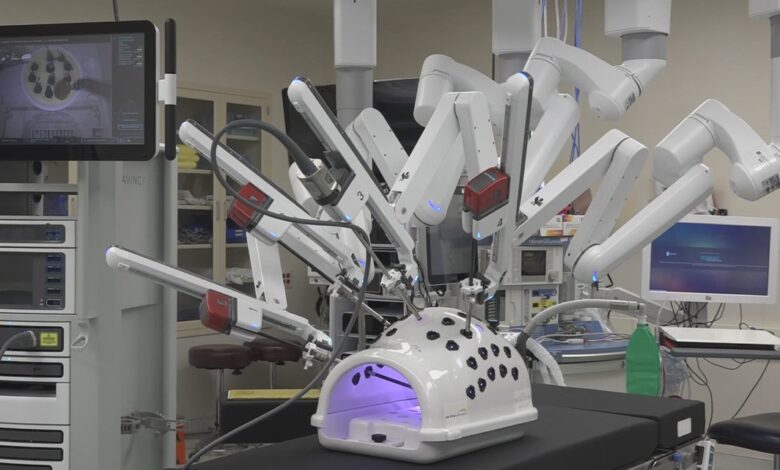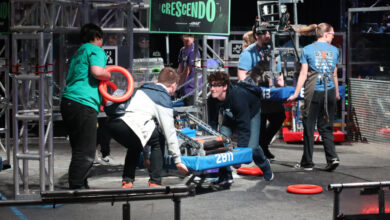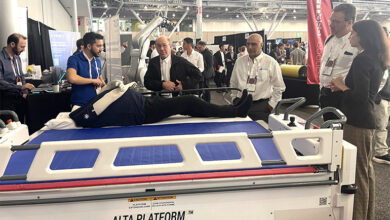St. Joseph Hospital introduces new robotic surgery device

The Da Vinci Xi surgical system was funded by a gift from the estate of John Marshall Webber, a long-time resident of Bangor.
BANGOR, Maine — St. Joseph Hospital recently introduced its new Da Vinci Xi robotic surgery device, which is used to complete minimal invasive surgeries that range in complexity.
Dr. Pedro Gomez, who specializes in general and minimally invasive surgeries, said doctors can use the device when performing more simple surgeries like gallbladder removals and for more complex surgeries like abdominal reconstructive wall surgeries.
According to the U.S. Food and Drug Administration, it has become increasingly common for medical professionals to use robotic surgery devices for brain, heart, gynecologic, prostate, and other serious operations. The devices allow surgeons to make small, precise incisions.
“My daughters kind of joke that I’m a surgical octopus in the sense that I can reach places otherwise that I couldn’t before,” Gomez said. “Literally you become like a spider.”
Gomez said the tool allows him and other medical professionals in an operating room to have more hands at work. The device has three instrument arms and one camera arm that are all completely controlled by the surgeon, giving them a three-dimensional, high-definition visualization of a patient’s inner organs.
Gomez said the device makes the surgery less invasive, making a patient’s recovery process easier. He also said the robotic device makes it easier to perform surgery on certain body types.
St. Joseph Hospital Vice President of Operations Sandra Sesin said the Da Vinci reframes how people envision robotics.
“I think a lot of times, when people think about a robot, they think about an autonomous robot like an R2D2 robot, and that’s not what this is,” Nesin said. “This is technology that’s acting as an extension of the skilled hands of our surgeons.”
The robotic device assimilates the motions of a surgeon’s hands and wrist movements, allowing surgeons a wider range of movements during a procedure that they don’t have when performing a traditional, open surgery.
“I’m right-handed by nature, but I can easily pass things from my left hand to my right hand, almost becoming ambidextrous, which is a huge benefit of the robotic technology,” Gomez said.
Nesin said by using the device, doctors can better prioritize patient care.
“For us, this represents our commitment to providing high-quality care to our patients and to our community,” she said.
The surgical system was funded by a gift from the estate of John Marshall Webber, a long-time resident of Bangor.



